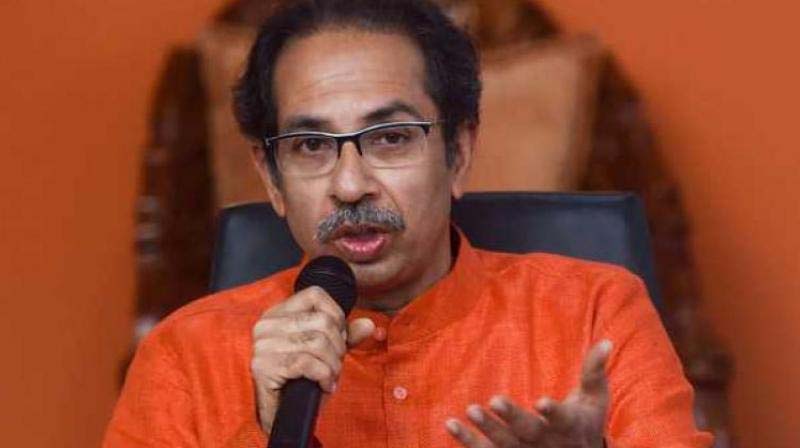Mumbai: Uddhav Thackeray, the chief of Shiv Sena (UBT), boldly declared on Sunday that he will not comply with the Election Commission of India’s (ECI) directive to remove the phrases “Jai Bhavani” and “Hindu” from his party’s new anthem. Speaking at a press briefing, Thackeray expressed deep offense at the request to exclude “Jai Bhavani,” seeing it as an affront to Maharashtra itself.
Thackeray revealed that his party had introduced an anthem to promote its new symbol, the “mashal” (flaming torch), and the ECI’s demand to erase “Hindu” and “Jai Bhavani” from it was met with strong resistance. “Chhatrapati Shivaji Maharaj established Hindavi Swaraj with the blessings of goddess Tulja Bhavani. We are not seeking votes in the name of the goddess or the Hindu religion. This demand is insulting and we will not accept it,” Thackeray asserted.
The Sena UBT leader affirmed his commitment to continue invoking “Jai Bhavani” and “Jai Shivaji” at his public gatherings. “Should the electoral body take action against us, they must also explain their stance on Prime Minister Narendra Modi, who, during the Karnataka assembly elections, encouraged people to chant ‘Jai Bajrang Bali’ before casting their votes. Amit Shah similarly urged voters to support the BJP for a free darshan of Ram Lalla in Ayodhya,” Thackeray pointed out.
Questioning whether there had been amendments to electoral laws permitting appeals for votes based on religion, Thackeray stated that the Shiv Sena (UBT) had sought clarification from the ECI. “Despite our inquiries and reminders, the electoral body has not responded. In our follow-up communication, we stated that if the laws have indeed changed, we will also chant ‘Har Har Mahadev’ at our election rallies.”
Recalling the past, the former chief minister highlighted that his father, Balasaheb Thackeray, was barred from voting and running for elections for six years due to his advocacy for Hindutva during Atal Bihari Vajpayee’s tenure as prime minister. Thackeray asserted that the party had also asked the ECI to clarify whether the religiously charged speeches made by PM Modi and Amit Shah during recent assembly elections constituted “corrupt practice” under the Representation of People Act.




